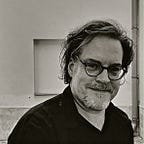J.S. Bach’s Maverick Son: C.P.E.
By Bradley Bambarger <2019>
It’s hard for us to picture bewigged figures of the 18th century as rebels akin to rockers or rappers, but German composer Carl Philipp Emanuel Bach — usually referred to now as “C.P.E.” Bach — made music that was just as iconoclastic in its day. His most avant-garde compositions were wildly dynamic and dramatic, bursting with the sound of surprise; his keyboard pieces and orchestral works pushed onward from the Baroque of his father — the towering Johann Sebastian Bach — toward the Classical era, serving as a prime inspiration for Haydn, Mozart and Beethoven, even Schubert.
C.P.E.’s music, with its volatility of tone and temper, can still seem bold today, so one can only imagine how disruptive those mood swings sounded to the listeners of his time. Eighteenth-century music historian Charles Burney noted how some fellow critics felt that C.P.E.’s works were overly “fantastical” and even “far-fetched” in his pursuit of what was dubbed, in German, Empfindsamer Stil, or the “expressive style” (which was tougher-minded and more impulsive than the even-keeled “galant” manner then in vogue at most courts). But Burney begged to differ with the more conservative-minded types, saying of C.P.E.: “His flights are not the wild ravings of ignorance or madness, but the effusions of cultivated genius. His pieces… will be found, upon a close examination, to be so rich in invention, taste and learning, that… each line of them would furnish more new ideas than can be discovered in a whole page of many other compositions.”
Born in 1714, C.P.E. was the fifth child and second surviving son of J.S. Bach — and the most famous member of the family throughout late 18th-century Europe, even more than his father at the time. (His brothers Wilhelm Friedemann and Johann Christian were notable musicians, too.) C.P.E., whose godfather was the composer Georg Philip Telemann, served as a chamber musician in the Prussian court of Frederick the Great in Berlin and later took over Telemann’s position as music director in Hamburg, where he worked until his death in 1788. A contemporary obituary for C.P.E. memorialized his music as “ever new, inexhaustible, great and powerful.” Listeners today can still feel those qualities when they hear the best recordings of C.P.E.’s scores, such as those of solo keyboard pieces by pianist Mikhail Pletnev, the string symphonies by conductor Trevor Pinnock, and the cello concertos by soloist Ophélie Gaillard. These works, especially the cello concertos, reveal C.P.E.’s venturesome, playful spirit — his sense of fun, which sounds timelessly modern.
C.P.E.’s scores suffered disregard as the decades wore on after his death, even as the previously neglected music of Johann Sebastian justly rose to Olympian status. Gradually, though, more recordings of C.P.E.’s music have appeared, with many to mark his 300th birthday year, in 2014. These include a double album of solo sonatas, rondos and fantasies by English pianist Danny Driver. (Check out his way with the wonderful Fantasie in F-sharp minor and Rondo in D minor.) Driver points out that C.P.E. learned the elements of Baroque style directly from their greatest practitioner, his father (whose music he revered), and incorporated those lessons into his sacred vocal works, in particular. But what was novel and fresh in C.P.E.’s keyboard and symphonic works, Driver explains, was their maverick unpredictability, driven by “sudden harmonic changes, questioning silences, melodic fragmentation, abrupt rhythmic shifts.”
C.P.E. was a renowned keyboard performer, and a keen improviser; he wrote a treatise — An Essay on the True Art of Playing Keyboard Instruments — that remains in print more than 250 years after its initial publication. Along with the requisite technical and stylistic accomplishment, emotional authenticity was vital, he wrote: “Since a musician cannot move others unless he himself is moved, he must of necessity feel all of the affects that he hopes to arouse in his listeners.” None other than Mozart commented on the pervasive influence of C.P.E. Bach’s music and philosophy, putting it bluntly: “He is the father, we are the children. Those of us who know anything at all learned it from him; anyone who does not admit this is a scoundrel.”
A C.P.E. Bach Playlist
Sonatas & Rondos: Mikhail Pletnev, piano (Deutsche Grammophon)
Keyboard Sonatas, Vols. 1 and 2: Danny Driver, piano (Hyperion)
Symphonies for Strings: The English Concert; Trevor Pinnock, harpsichord/ director (Archiv)
Cello Concertos and Symphonies: Pulcinella Orchestra; Ophélie Galliard, cello/director (Aparté)
Magnificat and Heilig Ist Gott: RIAS Chamber Choir; Akademie fur Alte Musik-Berlin; Hans-Christoph Rademann, conductor (Harmonia Mundi)
(Originally published in the March 2019 issue of In Tune magazine.)
